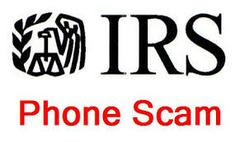Artificial intelligence (AI) is a powerful tool that can be used for good or for evil. In recent years, there has been an increase in the use of AI for scams. Scammers are using AI to create fake voices, images, and videos that can be used to trick people into giving them money or personal information.
One of the most common ways that AI is used in scams is to create fake voices. Scammers can use AI to create a voice that sounds exactly like someone you know, such as a friend, family member, or even a government official. This can be used to trick you into thinking that the person you are talking to is legitimate, when in fact they are a scammer.
Another way that AI is used in scams is to create fake images. Scammers can use AI to create images that look like they were taken from a real person’s social media account. This can be used to trick you into thinking that the person you are talking to is real, when in fact they are a scammer.
Finally, AI can also be used to create fake videos. Scammers can use AI to create videos that look like they were taken from a real person’s news interview or documentary. This can be used to trick you into thinking that the person you are talking to is real, when in fact they are a scammer.
If you are ever unsure whether someone you are talking to is legitimate, it is always best to err on the side of caution. Do not give out any personal information, such as your Social Security number or bank account information, to someone you do not know and trust. And if you think you have been the victim of a scam, you should report it to the authorities.
Here are some tips to protect yourself from AI-powered scams:
- Be wary of any unsolicited calls, emails, or messages.
- Don’t click on links in emails or messages from people you don’t know.
- Be careful about what information you share online.
- Use strong passwords and two-factor authentication for your online accounts.
- Keep your software up to date.
- Report any suspicious activity to the authorities.
*If you found that this tip does not sound like my normal writing style, you are correct. I used Google’s AI chat writer Bard to write the bulk of this post. And frankly it’s a little unsettling that AI is this good at writing a blog post. AI will never be able to add the personal stories that I throw into my writing. But it definitely does a good job of finding facts and putting them into a grammatically correct format. I don’t have any fear that my job will be replaced by a computer (at least before I am eligible to retire), but I can see the possibility of a change in how my job is done. The only thing certain in the workplace is change. I’m hoping that any AI change is used for good rather than evil.

